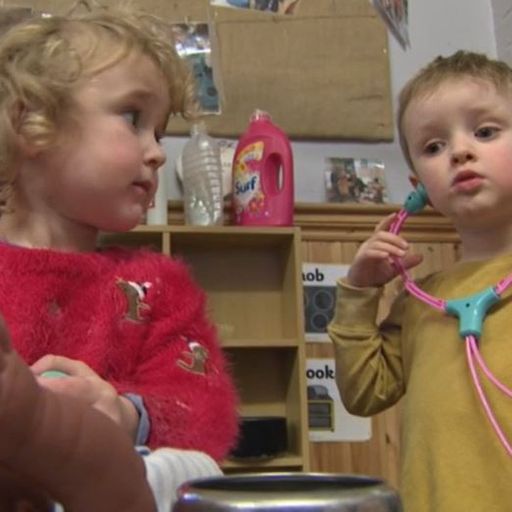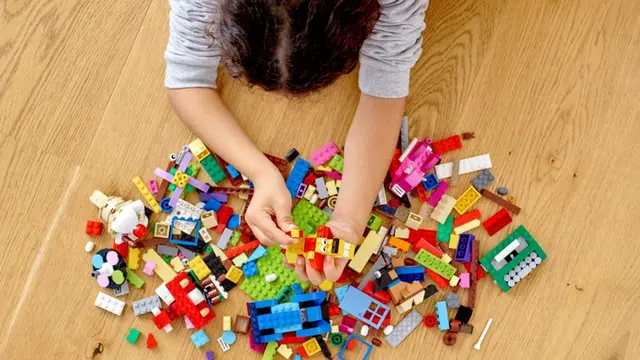Babies who were born during the first year of the pandemic scored lower on a developmental screening test than those born just before it, a new study has found.
Scientists at Columbia University in New York said children's development - in particular their social and motor skills - was not affected by whether the mother had
COVID-19
herself during her pregnancy.
Although the babies born during this period only scored slightly lower than their peers, the researchers warn that even small shifts can have significant public health impacts when considered at a population level.

Impact of lockdown on children's development will 'last for years and years'
Language and communication delays are now more common among preschool children.
The study was limited to 225 babies who were born in New York between March and December 2020, according to the study published in the journal JAMA Paediatrics.
Almost half of the mothers in the study has caught the virus at some point during their pregnancies, though most of the illnesses were mild or symptomatic.
A previous study has found such cases
appeared to have no effect on the brain
of a developing foetus.
However, in general, "infants born to mothers who have viral infections during pregnancy have a higher risk of neurodevelopmental deficits," said Dr Dani Dumitriu, an assistant professor of paediatrics at Columbia.
Dr Dumitriu said: "We were surprised to find absolutely no signal suggesting that exposure to COVID while in utero was linked to neurodevelopmental deficits.
"Rather, being in the womb of a mother experiencing the pandemic was associated with slightly lower scores in areas such as motor and social skills, though not in others, such as communication or problem-solving skills.
"The results suggest that the huge amount of stress felt by pregnant mothers during these unprecedented times may have played a role," Dr Dumitriu added.
"These were not large differences, meaning we did not see a higher rate of actual developmental delays in our sample of a few hundred babies, just small shifts in average scores between the groups," she added.
"But these small shifts warrant careful attention because at the population level, they can have a significant public health impact. We know this from other pandemics and natural disasters."
The findings - based on a questionnaire completed by parents - do not necessarily mean that this generation will be impaired later in life, the researchers wanted parents to know.
They also suggested that fewer play dates and altered interactions with stressed caregivers "may help explain why babies born during the pandemic have weaker social and motor skills than babies born before the pandemic".
 简体中文
简体中文

